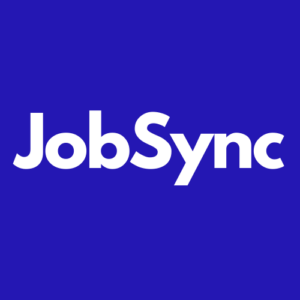
Marathon application processes are like a second job for candidates who resent having to jump through higher and harder hoops. Recruiters clearly need to screen for quality, but are you pushing talent away by demanding too much too soon?
“It bugs me to no end when I’m applying for a job, and they ask for three references up front. Not that I think they’re necessary for a normal IT job, but I sure as heck am not taking the time to put them down in the first step. There is no reason that you need that information before you even look at my resume.”
“One of the skill assessments I took had 89 questions on it. I even had a fake phone interview yesterday, where I had to record verbal responses to a bunch of dumbass questions such as:
- What motivates you at work other than a paycheck?
- Explain a time you had to deal with a difficult customer/coworker
- Why are you applying here?
Seriously… Filling out a SINGLE job application shouldn’t take me an hour. Especially considering that I’m probably going to be doing 40-50 of them before I get a decent lead.”
These complaints from Reddit users show just how hard and convoluted the hiring process has become. Ghosting and non-responses have always been a sore spot for applicants, but the latest trend is for recruiters to collect every possible piece of information from candidates from the get-go, turning what should be a 10-minute application into a grueling, multi-step marathon.
Questions that used to be asked during a one-on-one sit down with the hiring manager are creeping into the job application. Candidates face skill tests, complex exercises, and behavior quizzes that entail hours of work and preparation—with no assurance that an interview will occur. And that’s not all. Permission to perform background checks, requests to call current and former managers, references, social security numbers, and other data requests that may be appropriate later in the process, or even as the last step in the hiring process, is being made of candidates in the initial application.
Unsurprisingly, studies show that candidates are unimpressed by such time-consuming recruiting practices. Nothing’s more suspicious to candidates than being asked for their social security number, references, and highly personal data upfront.
Why are applications suddenly so over-the-top? And better yet, is it ever a good idea to front-load the recruiting process to this extent?
Recruiting’s Swinging Pendulum
Not so long ago, when unemployment was historically low and talent was in critically short supply, employers were doing everything possible to get candidates into the hiring funnel and keep it filled. Companies understood that if their recruiting process was too difficult, time-consuming, or invasive, candidates would simply abandon their applications and opt for another company. So, there was a real push to streamline the application process to keep candidate interest high and time investment low.
Job board “Easy Apply” features became all the rage. Candidates love Easy Applies because it allows them to shoot off 10, 20, 30—or more—applications in the time it takes to drink a cup of coffee. Recruiters, on the other hand, often have a hard time keeping up. Many have burned out trying to qualify candidates who had no business being in the funnel.
But what goes around, comes around. Now, we’re in the backlash.
Today’s economy is looking rockier than it has been in years, and many people are wondering if we’re actually dealing with a talent surplus of knowledge workers this time around. Layoffs and rumors of layoffs mean that recruiters are anticipating a surge in the number of candidates applying for open positions. With this surplus, recruiters feel more confident that they can be picky and demand more from applicants upfront.
The logic here is two-fold:
- Companies know that they need certain information at the point of hire, i.e., when the candidate starts on day one. If they ask for an SSN, Work Opportunity Tax Credit data, or even references up front, it’s simply to save time so the recruiter doesn’t have to chase this information down later. Getting the data at the application stage will shorten the time to fill, which, all things being equal, should reduce the cost per hire.
- Front-loading applications will screen out unqualified candidates and time wasters straightaway. Only the most committed candidates will be serious enough about the opportunity to go through all the steps of an elaborate application process. So, if they stick with it, they must be really motivated by the job.
In reality, there are serious negative effects of over-asking, and the logic is flawed on both counts.
Your White-Collar Bias is Creeping in
Recruiters are white-collar workers. Like most white-collar workers, the job they do is specialist and relational. Networking, building long-term relationships, being persistent, following up on small details, working collaboratively, and thinking creatively are all part of what makes them successful. Most recruiting processes are built around these principles and the people who are good at them.
Yet, the majority of open jobs are service-based, manual, deskless, or extraordinarily hard-to-find workers right now. Many of these jobs are temporal and transactional—there’s nothing wrong with that; they’re the backbone of our economy. However, the people doing these jobs look at the recruiting process differently than white-collar workers. They will not jump through hoops and answer all these questions just because it makes a recruiter’s job easier—at least, not without a lot of resentment, which translates to a terrible candidate experience and possibly not much loyalty if they get hired.
This disconnect is compounded by the fact that recruiters rarely go through their application process. Have you completed an application on your company’s ATS? Have you done it on a mobile device during the 10-minute break at your current job? Have you tried to complete your application after completing 10, 20, or 30 other similar role job applications? Even if a recruiter takes this step, they will never fully be in the shoes of a candidate making their 40th application of the day. They cannot appreciate the fatigue from writing yet another essay about “a time when you successfully handled a difficult customer.”
As for the questions themselves, sometimes the correct answer is apparent, defeating the point of asking. We’ve seen candidate questions such as, “Do you have attention to detail?” or “Would you empty an overflowing garbage can even if it’s the end of your shift?” Who’s going to say no? Candidates know the ‘right’ answer, and asking these questions does little to test for these traits; instead, it serves to demean candidates by suggesting that their common sense and professional integrity are in question.
The Systems Create More Problems
Systems are at least partly to blame for the situation recruiters have found themselves in. That’s because everything is standardized. An HRIS will have fields for the employee’s name, address, phone number, employee ID number, point of emergency contact, etc—it’s rigid.
An ATS is similar. Each job has a code and description, and recruiters will choose a template, such as a nursing or a warehouse questionnaire, to gather information from candidates. There needs to be room for nuance within these systems; for example, there is no place to ask whether an ER nurse needs a different skill set from the outpatient clinic nurse. Different jobs require different qualifying questions, but maintaining hundreds of job templates and ensuring that each job matches the right questions takes time and effort. So, employers do their best by creating questionnaires that have the most coverage. Then, recruiters generate an assessment to ask the questions they cannot ask as part of the ATS.
Since there’s often no easy way to slice and dice these assessment questions or information requests into the relevant part of the hiring process, the recruiter will “just in case” all the information from all the candidates as early as possible in the process. That’s how we end up with 100 assessment questions that may only have a marginal relevance to the job.
The cost of over-asking—and how to solve it
Two things happen when you try to make candidates fully formed before they’re put into the assessment process. First and most obviously, quality candidates are turned off and won’t bother to apply. You may achieve the goal of knocking out an unmanageable amount of applications, but you’ll also knock out qualified candidates who won’t run the gauntlet because you’re making the application too hard.
Second, candidates respond to over-asking by taking shortcuts and gaming the system. They’re using browser pre-population and AI-generated answers to create their own efficiencies. They might lie and give the answers they think you want to hear instead of the truth. They figure that since you’re not fully respecting their time, they don’t have to respect yours either. This blow-for-a-blow cycle puts recruiters back at square one, trying to differentiate between genuine candidates and the rest. It creates more inefficiencies than it solves.
So, what’s the answer? How can you be careful in your due diligence without asking too much of your candidates?
#1: Ask the real qualifying questions
You may think there is a fine line between collecting enough information to make an informed decision and asking too much, but that simply isn’t true. Most jobs have only one or two custom qualifying questions that determine the candidate’s ability to do the job. For example:
- Do you have a CDL license?
- Can you work the overnight shift?
- Do you have six months of forklift experience?
- Can you commute to this location every day?
- Are you authorized to work in the United States?
Identify the questions for each job and use tools like Job Sync to embed them in the application. This will attract qualified candidates to the assessment process; you can save the behavioral and culture-fit questions for those who make it through the basic evaluation.
#2: Collect data incrementally
HRIS managers have been conditioned to capture all the information the systems need all at once instead of getting only what’s required at the time. This is more than just white-collar thinking. It’s white-collar decision-making about a human process being determined by technology. A better approach is to adopt the “just in time” strategy of the manufacturing world and collect only the data you need as you need it along the process.
For example, you only need to ask candidates to complete an assessment if you have determined that they are qualified and engaged with the process. There should be no need to collect SSNs, background screen permissions, and references until you’ve completed the entire interview process and are nearly ready to make an offer. WOTC information isn’t needed until you’re ready to make an offer. The bottom line is to decide what information you need at each stage and plan for precision.
#3: Prioritize the candidate experience
In times like these, when layoffs and economic uncertainty are rampant, it’s more important than ever for companies to prioritize the candidate experience. Treating job seekers with empathy and respect has long-term benefits, and these benefits do not change just because the market is in flux.
By over-asking in applications, you lose the story of the person who has applied to your job. And that’s really the crux of it. You may or may not gain a little efficiency, but you definitely will discard good people from the next round because they didn’t look perfect on paper. Are you hiring for right now or for the long term?
Filtering out the unqualified and bots makes sense, but front-loading everything into the application process can quickly become an exercise in looking for reasons not to hire someone. Especially when layoffs are looming, and others are leaning towards a more invasive application process, you can stand out by keeping the talent experience top of mind. Sometimes, you have to focus less on screening candidates out and more on screening candidates in.


